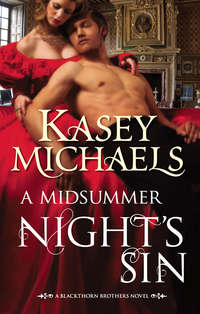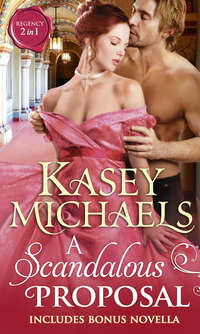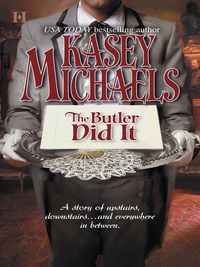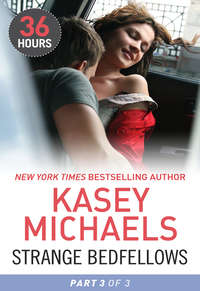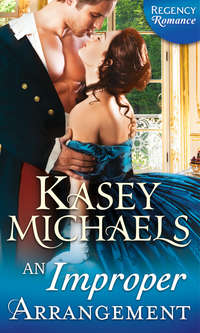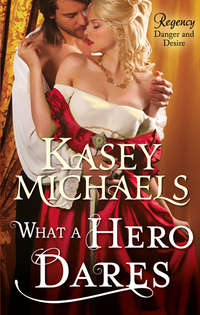
Полная версия
A Reckless Beauty

KASEY MICHAELS
A Reckless Beauty

To Joseph Charles Groller
Welcome to the world, Joey!
Contents
PROLOGUE
CHAPTER ONE
CHAPTER TWO
CHAPTER THREE
CHAPTER FOUR
CHAPTER FIVE
CHAPTER SIX
CHAPTER SEVEN
CHAPTER EIGHT
CHAPTER NINE
CHAPTER TEN
CHAPTER ELEVEN
CHAPTER TWELVE
CHAPTER THIRTEEN
CHAPTER FOURTEEN
CHAPTER FIFTEEN
CHAPTER SIXTEEN
CHAPTER SEVENTEEN
CHAPTER EIGHTEEN
CHAPTER NINETEEN
CHAPTER TWENTY
CHAPTER TWENTY-ONE
CHAPTER TWENTY-TWO
CHAPTER TWENTY-THREE
CHAPTER TWENTY-FOUR
PROLOGUE
March 1815
FRENCH SOIL ONCE MORE, so long denied him. Paris awaits!
Napoleon Bonaparte, by the grace of God, Emperor of France, King of Italy, etc., etc., halts at the head of his army of less than one thousand of the Old Guard who had chosen to be exiled with him on Elba for more than a year.
The moment is here. He comes face-to-face with an equal number of royal troops that have appeared with orders to exterminate him and his “band of brigands.”
Bonaparte dismounts and walks forward ten precise paces on the dusty road. One slight, small man, alone between two armies. Unarmed. Vulnerable.
“Soldiers of the fifth army corps!” he shouts defiantly to the royal troops, his voice carrying in the still air. “Don’t you know me? Is there one among you who wishes to kill his Emperor, let him come forward and do so. Here I am!”
And, in a move so daring it brings gasps of dismay from both sides of the line, he throws wide the simple gray cloak covering his chest.
After a tense silence, the cry goes up from all sides. “Vive l’Empereur! Vive l’Empereur!”
The one thousand are now two thousand. Bonaparte remounts and surveys his new army from atop his charger, and then stands straight in the stirrups.
Solemnly, silently, he points toward Paris.
And the world trembles…
CHAPTER ONE
Becket Hall, Romney Marsh
DINNER OVER, Ainsley Becket relaxed in his favorite chair in the drawing room, listening to his children as they discussed Bonaparte’s adventures since escaping Elba several weeks earlier.
Breakfast, luncheon, dinner, the conversation never seemed to vary. What will Bonaparte do? Where will he strike first? Will the Allies cede all command to the Iron Duke? Will Wellington be able to defeat the man he had, remarkably, never before met in battle?
Ainsley let their individual voices fade into the background as he concentrated on his children.
Such a disparate group, all eight of his children; seven of them the children of his heart, and now all of them grown, some of them already gone their own way, with his blessing.
Morgan, a wife and mother now, lived on her husband’s estate near London, her Ethan Tanner, Earl of Aylesford, undoubtedly laboring very long hours at the War Office.
Chance, Ainsley knew from the letter he’d received from his oldest son a week ago, was also back at work in the War Office, as all of England braced itself for the inevitable clash with the man they’d believed vanquished.
Ainsley sipped at his snifter of brandy, selfishly content that these two men had found a way to serve the Crown without exposing themselves to battle, and stole a look at his son Spencer, who was bouncing his young son, William, on his leg as Mariah Becket smiled at them both.
Would Spencer willingly leave his small family and go to war again? Ainsley planned a quiet talk with the boy, who had sacrificed enough in America, and needed to think first of his wife and son, and the second child Mariah now carried.
Eleanor and her husband, Jack, sat close together near the fireplace, a stack of Paris newspapers Ainsley had acquired in his usual secretive, inventive ways piled in Eleanor’s lap. There still was no baby to be held in her arms, a sorrow she hid most times, but one that Ainsley knew ate at his oldest daughter’s heart.
Callie, the youngest, and the only child born to Ainsley and his lost Isabella, continued her argument with her brother Courtland about the latter’s assertion that he should buy a commission in the army Wellington was hastily forming to confront the French emperor, now that the majority of the Field Marshal’s troops had been sent to fight the Americans. As it was, foreign troops would outnumber English troops two-to-one.
Courtland, always the solid one, the rock of the Beckets, firmly believed in duty.
Callie, with all the surety of a seventeen-year-old, firmly believed Courtland belonged to her.
“You and Jack have enough on your plates, Court,” Ainsley said quietly now, making his point without overtly referring to the roles the two men played aiding the local smugglers, and Courtland nodded his reluctant agreement.
“I know, sir, but I believe you and Jacko are still reasonably capable and can run Becket Hall in our absence. Besides, we’ll have Boney corralled and in a cage in a few months, if not weeks.”
Callie, always sharp, sharper than most females were raised to be, spoke up. “In a cage, you say, Court? I believe—you’ll correct me if I’m wrong, Papa—that it was Marshal Ney who promised the now displaced King Louis that he would bring Bonaparte to him in an iron cage and place him before Louis’s throne.”
She grinned at Court. “Would that be the same iron cage, Courtland, hmm? Especially now that Ney is back to perching on a cushion at Bonaparte’s feet, apologetically licking his boots?”
Mariah Becket laughed as she took young William from her husband and lifted him into her arms. “She’s got you there, Court. You men. So much bluster, so many promises. Spencer? I’ll see you upstairs, and meet you with a book tossed at your head if you dare to even hint that you’ll attempt to follow the drum again.”
Everyone waited until Mariah had left the drawing room before bursting into laughter at Spencer’s expense.
“Well and truly tied to the apron strings, aren’t you, old fellow?” Jack Eastwood asked, earning himself a speaking look from the love of his life. Morgan or Mariah would have delivered a sharp jab to his ribs, but the petite, ladylike Eleanor needed only to send a level look from her speaking eyes, and Jack subsided, murmuring a quiet, “Sorry, Spence.”
“It’s all right,” Spencer said, walking over to the drinks table to pour himself a glass of wine. “I know I can’t go. And neither can you two, not when the Black Ghost has to ride out with regularity, and definitely not when we still don’t know where our old friend Edmund Beales might next show his face—and recognize yours. What if he’s acting as Talleyrand has, and has now thrown in his lot with the Alliance, abandoning Bonaparte after the fiasco that was his attempt to free him from Elba last August? Bonaparte might not be quite in love with the man now, you know?”
Mention of Edmund Beales cast the room into silence for some moments, and Ainsley was, as always, thrown back in time, remembering the days when he’d considered Edmund his best friend and partner. Before Edmund’s betrayal. Before Isabella’s death at Edmund’s hands. Before the massacre on the island that had brought them all to England and the protective isolation of Romney Marsh seventeen years ago. Before they’d learned that Edmund still lived, and had taken his study of Machiavelli’s mad genius to heart, believing himself destined to control the destinies of half the world. Before…before…before…
“It’s true,” Callie said, breaking the silence, as she saw the shadows in her papa’s eyes, and wanted them gone. “None of you can be seen by Beales, as he may have seen all of your faces at one time or another. So you can relax, Papa, nobody is running off to war. Except Rian, of course,” she added, her pretty face marred by a frown as she thought about the day, a few weeks earlier, Rian had made his farewells and ridden away with an eagerness he couldn’t quite disguise, his commission in his pocket.
“Our brother is so damn hot to play the hero, the fool,” Spencer said, shaking his head. “We can only hope he’ll stay cooling his heels in Belgium, and never even set foot on French soil.”
“Amen to that, Spencer. I still find it difficult to believe the way the French have embraced Bonaparte, after damning him just over a year ago,” Eleanor said, paging through the newspapers she’d been holding on her lap. “Just look at these, for pity’s sake. Let me read the titles of the articles written over the course of the past weeks by the Moniteur, once so loyal to the Emperor. Here, darling, help me before they all slide to the floor.”
She passed some of the newspapers to Jack, whom she asked to read the oldest one first.
“It would be my pleasure. Ah, here we go. ‘The Corsican werewolf has landed at Cannes.’”
“Yes, the werewolf,” Eleanor said. “Now this one is next, only a few short days later. ‘The tiger appeared at Gap, troops were sent against him, the wretched adventurer ended his career in the mountains.’ They said he’d been killed, for pity’s sake.”
Jack reached for another newspaper. “And were forced to eat their own words. ‘The fiend has actually, thanks to treachery, been able to get as far as Grenoble.’”
Eleanor continued with the title of a later article, “‘The tyrant has reached Lyons, where horror paralyzed all attempts at resistance.’ But, Papa, haven’t your agents in France already told you Bonaparte was greeted with cheers and bouquets?”
Ainsley nodded. “Eleanor, you really expect truth from a newspaper controlled by the state? I thought I’d taught you to be more discerning than that. Read the rest, if you please. They are amusing, in a rather macabre way.”
Jack lifted another newspaper, scanned it and smiled ruefully. “Ah, no longer the werewolf, tiger or tyrant, I see, but actually at last referred to by name. And in just a few days time. ‘Bonaparte moves northward with rapid strides, but he will never reach Paris.’”
“And these last two,” Eleanor said, shaking her head. “‘Tomorrow Napoleon will be at our gates.’ And, lastly, this, ‘His Majesty is at Fontainebleau.’ His Majesty, is it? Hypocrites, all of them! But if that’s how rapidly the French can turn their coats, can Bonaparte sleep easy at night?”
Ainsley drained the last of his brandy and stood, ready to return to his study and the maps he’d been poring over since first he heard of Bonaparte’s escape, comparing those maps to the steady stream of information his money so cleverly bought. He’d correctly picked Cannes as the man’s initial destination. Now he looked north, to the area around Brussels, feeling that to be the logical ground for Wellington and the Emperor to at last meet across a battlefield. He’d already forwarded his thoughts to Chance and Ethan, with little hope such an necessarily anonymous warning would be heeded by their superiors.
And Rian, God help them, was already in Belgium.
“Remy,” he said, referring to his informant in Paris, “has written me that Bonaparte paused on the steps of his palace the day of his arrival, to look out on the quiet city, and said, ‘They have let me come, just as they let the others go.’ So, if that answers your question, Eleanor, I would say that the man knows his rule is tenuous, at best. Which I believe, sadly, means he will march out of Paris soon, to confront the Allies, rather than wait for them to come to him. He has to prove that he is still the strongest man in Europe.”
Courtland, who had spent many hours poring over the same communiqués and maps as Ainsley, disagreed. “It will be the end of July before the Russians and Austrians can meet up with our own army, and neither we English nor the Prussians will be fool enough to engage Bonaparte until all of the Allies are together.”
Ainsley smiled indulgently. “Don’t think of rosy scenarios, where the world works to your hopes, Court. Better to think like your enemy. Can you conceive of a better reason for Bonaparte to move now? His people will want to see a victory, a bit of the old soldier in his battle-worn green greatcoat, even if that means coming out with a smaller army than he’d like. And I do not believe he wants that initial fight to be a defensive action, one that takes place on French soil. No, Bonaparte is first and foremost a soldier. War may have been declared on him by the Alliance, but he will take the initiative, attack. If only the fools in the War Office could understand this.”
“Pray God they will, Papa. So…so Rian could be closer to this first battle, when it comes, than we believe?” Eleanor asked, slipping her hand into Jack’s.
“That blasted girl!”
All heads turned to look at Mariah, who was standing in the doorway, her cheeks flushed, and clutching a thick lock of light blond hair. She held it aloft, shook it with some fury.
Ainsley looked at the hank of hair and felt a frightening chill, as if a goose had just walked over his grave. “Fanny?”
Mariah nodded, scarcely able to speak. Fanny Becket had pushed back from the dinner table the previous evening, complaining of the headache, and gone to her room. “I knocked on her door a few times today, but there was no answer. You know how can she can be, sulking ever since Rian left, and I decided—Eleanor and I decided—to simply let her stay locked up in there until her stomach finally forced her out again. But tonight, well, enough is enough, so I commandeered a key and…and she’s not there.”
Callie turned in her chair to ask, “She’s run away? Did she leave a note?”
“She didn’t have to,” Ainsley said, sitting down heavily, feeling all of his years. “We all know where your sister has gone.”
CHAPTER TWO
FANNY BECKET hid herself just at the entrance to a foul-smelling alley fronting on the bustling wharf where soldiers and horses milled about as dusk fell, waiting for the order to take ship. She nervously fingered the gad hanging around her neck from a gold chain, one of the especially prepared alligator teeth her old nurse and Voodoo priestess, Odette, insisted all the Beckets wear.
It was a silly thing, but Odette renewed the protective magic in each gad every spring, and how could Fanny leave such a potent weapon against the bad loa, the bad spirits, behind as she went off to war?
Dear God, she was going to war!
She’d ridden through the night and day to make Dover before anyone could catch her, drag her home, but she’d been standing in this alley for the past two hours, not knowing what to do next. Because Dover wasn’t Ostend, and she knew she had to get herself across the Channel to Ostend before she could travel inland, to Brussels.
To Rian.
Her mare, Molly, stood obediently behind her, nuzzling at Fanny’s neck, hoping for a treat, and she absently dug into the pocket of Rian’s cloak for the last broken bit of carrot she had brought with her, handing it up to the horse.
It was a mad scheme she was considering now as she peeked out at the milling soldiers, but desperate times called for desperate actions. After all, Rian had told her she was pretty, even as he laughed at her, pretended not to love her as anything more than his sister, even though they were not related by blood.
But they’d always been together, for as long as Fanny could remember. From that day when, at no more than three years old, she had knelt beside her mother in the pretty, whitewashed island church, and the priest was holding up the chalice, and her mother bowed her head, striking her breast three times, once for each time the bell was rung on the altar.
Just as the bell rang that third time, the cannon had exploded all around them, and Fanny had looked up, seen the blue sky, seen bits of the roof raining down on them before being pushed to the floor, her mother lying on top of her, protecting her.
That’s where the man later to christen himself Ainsley Becket had found her, still half-crushed beneath her mother’s lifeless body. There were others, other survivors of the Spanish pirate’s attack that had come from the sea without warning, Rian among them. Three of the women still lived in Becket Village, but other mothers and their children, and the four other orphans of that day, had survived only to die several months later, when Edmund Beales attacked their island.
Pirates. Brigands. Warm white sands and clear blue waters. Death. Death everywhere; once, and then again. Fanny barely remembered any of it. Just watching her mother beat at her breast as the bell rang, calling down the roof onto their heads…and Rian, only a few years her senior, but always there, always holding her hand, protecting her, swooping her up into his own thin arms that last day and carrying her deep into the trees, away from Edmund Beales’s treachery.
She’d do anything to protect him, as well.
Even see if he was right, that she was pretty. A pretty girl.
Fanny tested the knot holding the colored scarf around her head, hiding her badly butchered blond hair, and flipped the edges of her cloak back over her shoulders, the better to display the rumpled gown she’d donned over her breeches once reaching Dover.
“Don’t follow me, Molly,” she admonished the mare that hung her head as if she understood, and she probably did, for Molly was very intelligent, and Fanny had trained her well.
Then Fanny stepped out of the shadows, heading directly toward the slim young boy in the scarlet uniform of the 13th Regiment cavalry. She’d chosen him for his regiment, for his youth, for his size.
“You’re to be sailin’ off tonight, is it, you pretty thing?” she asked him, circling around both him and his horse, effectively cutting the youth from the herd of his fellow soldiers, all of them exhausted after sailing from Cove, their ship damaged enough that they’d had to put in at Dover for both repairs and provisions before following their two other ships to Ostend.
It had been unbelievable good luck, an omen, Odette would have said, that she’d found some of the 13th here, on this overcrowded dock. Rian’s own regiment; fine, brave Irishmen from County Cork, and beyond. It had seemed fitting to Rian that he fight with the Irish, even if the only thing still Irish about him was his blood, and his name. For the past seventeen years, since the age of nine, since that bell had rung a third time, he had been a Becket.
The young boy Fanny had singled out—he seemed such a child—dipped his head at Fanny’s question, swallowing down so hard that his Adam’s apple seemed ready to collide with his chin. “And that we are, Miss. Off to chase Boney back where he belongs, give him what for.”
Fanny measured him with her eyes. Yes, this was good. He topped her own not inconsiderable height by only a few inches. “Well, God bless you then, boyo,” she said, pushing even more of a lilt into her voice. “And would you be wanting somethin’ to take with you then? A last kiss from a grateful lass late of County Clare? Mayhap a bit more than a kiss?”
The young soldier looked about him, wetting his lips. “I’m not supposin’ you’d be offerin’ such a thing for free.”
Fanny smiled. “And what are you takin’ me for, boyo? One of them loose wimmen?” She reached up, stroked his smooth cheek that had only a hint of peach fuzz. What was he? Sixteen? “No brave man should be goin’ off to fight without first bein’ with a willin’ lass, now should he?”
“I been,” the soldier protested, his cheeks going red. “I been plenty.” He clasped his rifle with one hand and took her elbow with the other, even as she deftly grabbed on to his mount’s bridle, steering her toward the alleyway, which was right where she wanted to go. “But it’s quick we’ll be, a’fore the Sergeant-Major misses me, you hear?”
Fanny felt herself pushed rather roughly against the wet brick as the boy fumbled, one hand holding her still even as he propped his rifle against the wall and began unbuttoning his breeches.
That was helpful. He was giving her a head start, in a way, or so Fanny thought as she closed her eyes, whispered a quick “I’m so sorry” and brought the heel of the pistol she’d extracted from the pocket of her cloak down hard on the soldier’s temple.
Fanny might be young, and slim, but she was also tall, and fairly strong. Bending only slightly beneath the dead weight of the soldier, she dragged him deeper into the alleyway and lowered him gently to the ground.
She worked quickly, stripping the boy to his last little bit of clothing, for she was wearing Rian’s underclothes, and didn’t much care to exchange them for drawers that looked, even in this dim light, capable of standing up by themselves.
Five minutes later, leaving behind a small purse of coins, as well as a rough pair of trousers and a shirt for the boy to cover himself with when he awoke, and with her white braces in place across her now red-coated chest, the rifle slung over her shoulder, as well as the heavy pack containing the best of the soldier’s gear and her own, Fanny emerged from the alleyway once more, leading Molly and the black gelding by the reins of their bridles.
She stayed between the two horses and kept her head down as she joined the men just now being formed up to go aboard, wondering if she’d just saved one young Irish life, but never doubting her own fate.
Ostend awaited. Brussels awaited.
Rian, although he didn’t know it yet, awaited.
CHAPTER THREE
RIAN BECKET sat alone at a back table in a small roadside tavern in an area he believed was called something akin to Scendelbeck, the top button of his uniform opened, his overlong black hair damp and plastered against his forehead above bright blue eyes that hadn’t seen more than a few hours of sleep in several weeks.
So much for the romance and glory of war.
Thus far, that war consisted of a prodigious amount of parading under a hot sun or a drenching downpour, a good deal of tending to his horse, a measure of drinking, and much too much sitting and waiting.
At least at long last Rian had seen the man he’d been cheated out of meeting last year in London, as the Duke of Wellington himself had just today inspected their forces, along with the Prince of Orange, the Duc de Berri, the Duke of Brunswick and even Field Marshal Blücher, the man, it was said, who had drunk half of London under the table when there last August for, it turned out now, the premature Peace Celebrations.
“Lieutenant Rian Becket?”
Rian looked up at the tall man standing in front of the table, about to rise if that man had been wearing a uniform. But as he wasn’t, and looked very much as if the clothes he did stand up in were the same clothes he’d laid down in several nights in a row, Rian only slipped lower on his spine in the wooden chair and motioned for the fellow to join him.
“I’d offer you some of my wine,” Rian said, hefting the dark blue bottle in front of him, “but as you can see, alas, I’ve finished the last of it. You know my name. If you’d now return the favor, perhaps we can then split a new bottle.”
The sandy-haired ruffian—he did, truly, look the ruffian—smiled as he sat down and extended his hand. “Valentine Clement, Mr. Becket, at your service. Jack Eastwood wrote to me, asked that I—”
“Jack? Oh, bloody hell,” Rian swore, sitting up straight while ignoring the man’s outstretched hand. “My brother-in-law thinks I need a nursemaid? No, thank you. And if you’re applying for the role of batman, Clement, it should have occurred to you to first clean up your dirt before presenting yourself.”
The man withdrew his hand, his light hazel eyes twinkling in amusement. “A thousand pardons, Lieutenant Becket. I’ll inform your brother-in-law of your so polite refusal.” He pushed back his chair and got to his feet before making a damned graceful bow for a ruffian, a small smile on his face. “Good day to you, sir.”


